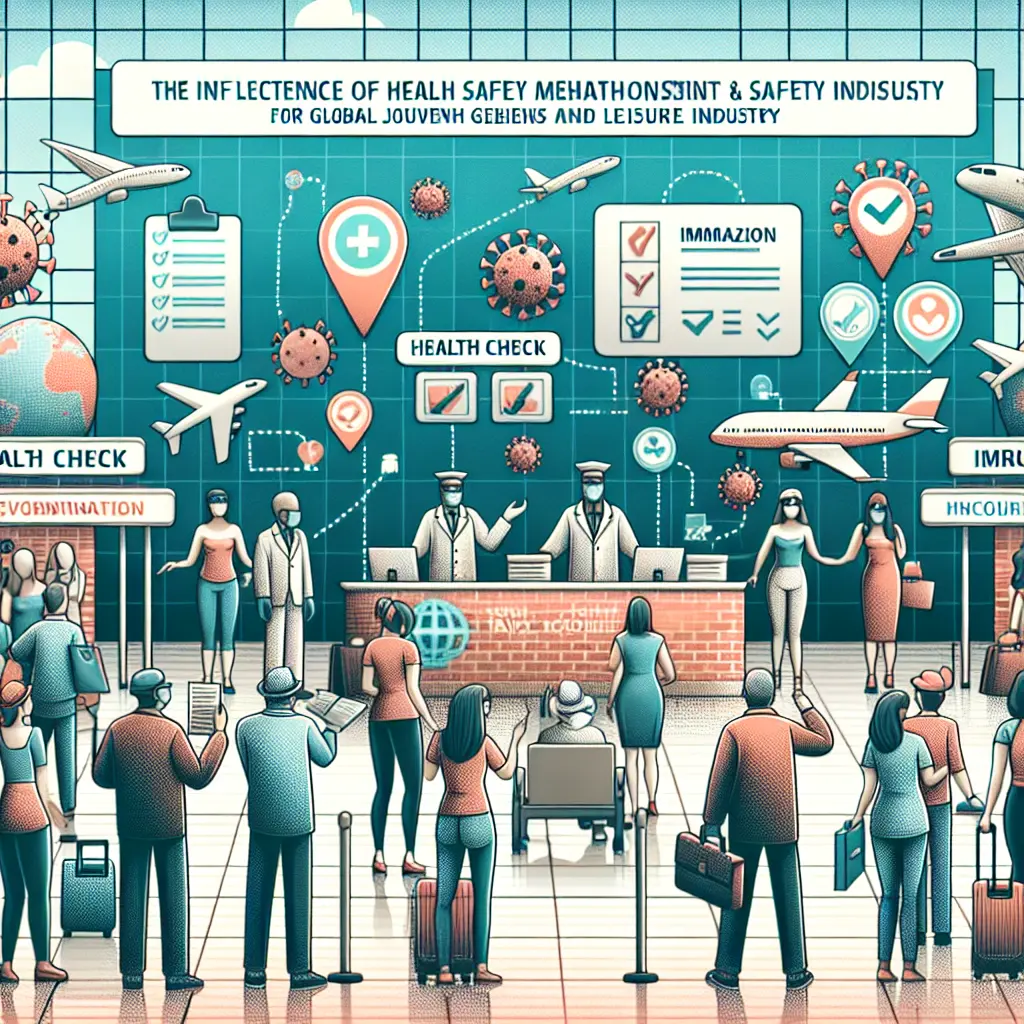
The travel and tourism industry has undergone seismic shifts since the onset of the COVID-19 pandemic, with vaccine mandates emerging as a particularly potent factor influencing global travel dynamics. The implementation of these mandates has sparked a broad spectrum of reactions and adaptations within the sector. As we navigate through the evolving landscape of health policies, it becomes crucial to understand the multifaceted impact of vaccine mandates on travel and tourism.
The Introduction of Vaccine Mandates and Their Immediate Impact
Initially, the introduction of COVID-19 vaccine travel requirements was seen as a gateway to revitalizing the crippled tourism industry. Countries and regions implementing these mandates hoped to safeguard public health while kickstarting international travel. For instance, the concept of a 'vaccine passport' in the tourism industry was introduced to streamline the process of verifying health credentials, thus facilitating smoother travel experiences for vaccinated individuals.
However, the imposition of global travel vaccine mandates has not been without controversy or consequence. The vaccine mandate controversy in the travel industry illustrates a deep divide among stakeholders. Some travelers and industry advocates argue that these mandates infringe on personal freedoms and complicate travel plans, potentially leading to a tourism decline associated with vaccine mandates.
Exploring Broader Implications and Reactions
The requirement for vaccination has significantly influenced tourist behavior, with some choosing destinations based on the leniency or strictness of local vaccination policies. This shift is evident in studies and reports indicating variations in travel patterns based on vaccination requirements for travel.
Moreover, the travel industry's adaptation to vaccine mandates has been noteworthy. Many airlines, cruise lines, and hospitality businesses have had to overhaul their operational strategies to comply with new regulations while trying to minimize inconvenience to passengers and guests. The economic pressure to adapt quickly yet efficiently has been a substantial challenge for many in the sector.
Controversies and Legal Challenges
Notably, vaccine mandates have also led to legal and ethical debates. A recent lawsuit against Netflix by the company's former Risk Management Director highlights the contentious nature of mandates in corporate settings, including those indirectly related to travel and tourism. The plaintiff labeled the mandates as "malicious," pointing to broader dissent in various sectors regarding mandatory vaccination policies (source: [Reputable News Source]).
In politics, figures like J.D. Vance have made headlines with their strong stances on vaccine mandates. Vance's previous comments on firing nurses who refused the COVID-19 vaccine underscore the intense debates surrounding mandatory vaccination across different sectors (source: [Reputable News Source]).
Impact on Public Health and Safety
Despite the controversies, there is significant evidence suggesting that vaccine mandates have positively impacted public health within the travel sector. Recent studies have shown that mask and vaccine mandates saved lives during peaks of the pandemic, underscoring the effectiveness of these interventions despite their imperfections (source: [Reputable Health Journal]).
However, opinions remain divided. Former CDC chief's admission regarding the missteps in implementing vaccine mandates reflects a broader reconsideration of how these policies were handled. His statement that these mandates were "one of the greatest mistakes" invites reflection on how public health strategies affect not just individual freedoms but also collective safety and economic recovery (source: [Reputable News Source]).
International Perspectives and Recovery
Globally, the reaction to vaccine mandates has varied significantly. Leaders like Perrottet in Australia have declared pandemic vaccine mandates as 'wrong,' highlighting a global reconsideration of how such health policies should be implemented moving forward (source: [Reputable News Source]).
On the other hand, international tourism recovery is closely tied to vaccination rates and policies. Regions with higher vaccination rates and clear, consistent policies have generally seen a more robust recovery in their tourism sectors. This linkage suggests that while controversial, vaccination policies are crucial in restoring traveler confidence and catalyzing economic recovery.
Conclusion: Navigating a Path Forward
The impact of health policies on tourism is undeniable. As we assess the effect of vaccine mandates on the travel sector, it becomes clear that a balance must be struck between safeguarding public health and promoting economic recovery. The tourism industry must continue to adapt to these mandates thoughtfully, considering both the scientific guidance available and the sentiments of travelers.
In conclusion, while vaccine mandates have undoubtedly influenced travel patterns and industry practices, their ultimate legacy will likely be defined by how well the global community can leverage these experiences to prepare for future challenges. As we move forward, fostering dialogue between health authorities, industry stakeholders, and travelers will be essential in shaping a resilient tourism landscape.
Gregory Stanton